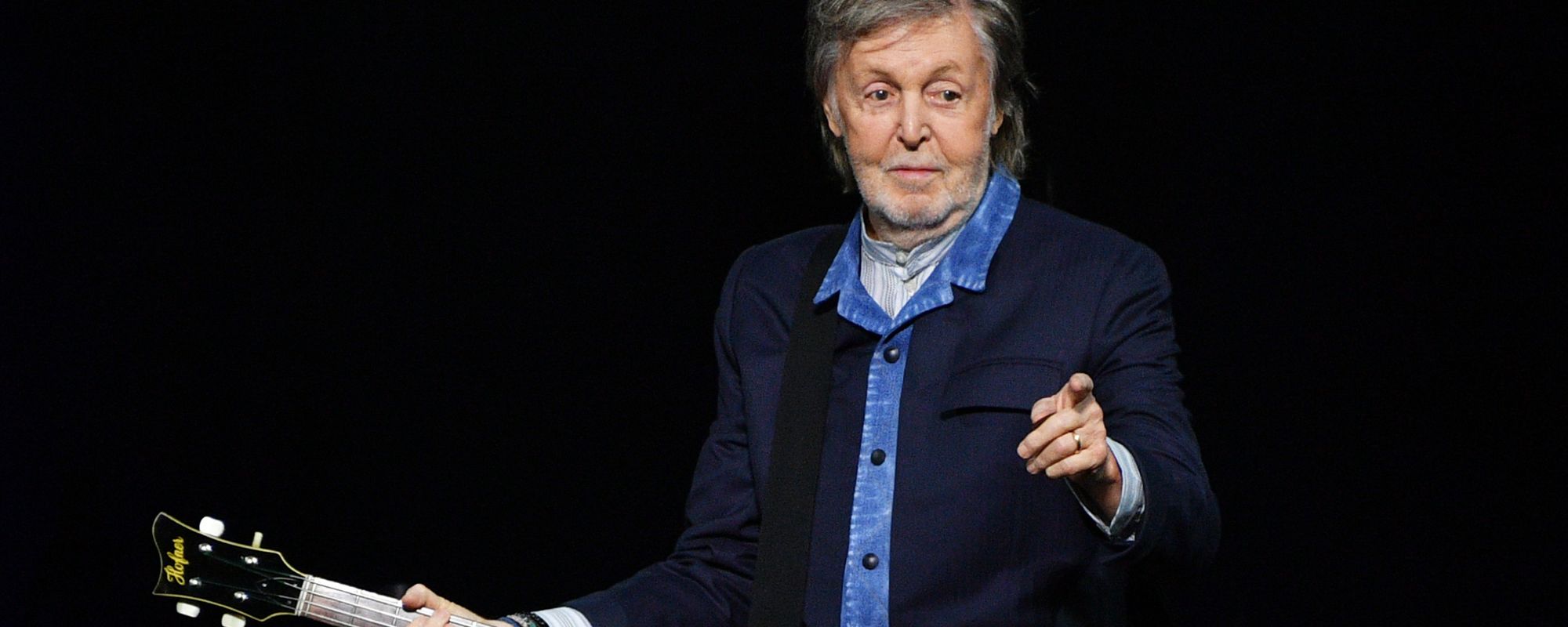In 1969, John Lennon’s first solo release, “Give Peace a Chance,” became a rallying cry for the anti-war movement of the 1970s. Lennon recorded it with Yoko Ono and a group of friends while he was still a member of The Beatles, and the song took off with musical, social, and political sentiments.
Videos by American Songwriter
22 years later, in 1991, Iraq was nearing its deadline from the United Nations to pull troops out of Kuwait. The country was given until January 15, 1991, to remove its military from Kuwait. Many feared a war as the deadline neared, and the hostilities eventually led to the Gulf War. At the time, however, artists like Lenny Kravitz thought to protest the impending conflict by writing a song.
John Lennon had already written the perfect anti-war song, though. In 1991, Yoko Ono and her son Sean Ono-Lennon decided to re-record “Give Peace a Chance” with the help of Lenny Kravitz as producer. Proceeds of the single were donated to the Greening of the World John Lennon Scholarship Fund, which had benefitted the year before with a concert in Liverpool, where Kravitz met Ono.
Yoko Ono and Lenny Kravitz Work Together on Re-recorded “Give Peace a Chance”
Ono and Kravitz gathered a diverse selection of artists, calling them the Peace Choir. Amina, Adam Ant, Sebastian Bach, Bros, Felix Cavaliere, Terence Trent D’Arby, Flea, John Frusciante, and Peter Gabriel were involved. Other artists included Kadeem Hardison, Ofra Haza, Joe Higgs, Bruce Hornsby, Lee Jaffe, Al Jarreau, Jazzie B, and Davey Johnstone.
Additionally, Cyndi Lauper, Sean Ono Lennon, Little Richard, LL Cool J, MC Hammer, Michael McDonald, Duff McKagan, Alannah Myles, and New Voices of Freedom were involved. Rounding out the Peace Choir were Randy Newman, Tom Petty, Iggy Pop, Q-Tip, Bonnie Raitt, Run, Dave Stewart, Teena Marie, Little Steven Van Zandt, Don Was, Wendy & Lisa, Ahmet Zappa, Dweezil Zappa, and Moon Unit Zappa.
The re-recorded “Give Peace a Chance” landed at No. 54 on the Billboard Hot 100. The original peaked at No. 14 on the charts during the height of the Vietnam War. While the song is slightly dated now, it did moderately well in 1991. However, the difference in popularity from 1969 to 1991 may have something to do with the lack of media coverage of protestors during the Gulf War. At least, in comparison to protest footage from the 1970s.
Featured Image by Larry Busacca/WireImage












Leave a Reply
Only members can comment. Become a member. Already a member? Log in.